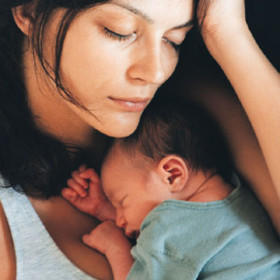 Last week, after crashing into a barrier at the White House, injuring an officer and starting a high-speed car chase through the heart of Washington, a 34-year single mom was shot to death. Her 13-month old daughter in the car avoided physical injury and was taken into protective custody.
Last week, after crashing into a barrier at the White House, injuring an officer and starting a high-speed car chase through the heart of Washington, a 34-year single mom was shot to death. Her 13-month old daughter in the car avoided physical injury and was taken into protective custody.
This incident took place in a city already distressed over the government shutdown and a shooting in the Capitol whereby a gunman killed 12 people a couple of weeks ago.
News stories like the Washington Naval Yard rampage have become too familiar and too many of the circumstances have been the same – a young man, bullied, a loner, stockpiling guns, job loss, socially isolated, mental deterioration.
But who Miriam Carey was still remains a mystery.
The ‘baby blues’ are common for 50-80% of new moms, during a time of high stress of caring for a newborn. And with hormones changing dramatically, postpartum depression, which affects 14% of women, lasts longer than the blues and can result in mood swings, crying spells and problems bonding. Despite feelings of anxiety, sadness and guilt, these mothers still maintain insight and judgment.
At the extreme of this continuum is postpartum psychosis, a severe form of mental illness, which affects 1-2 women in 1,000. It can cause paranoia, delusions or hallucinations. And like the recent events in the Capitol, it’s often associated with impulses to harm yourself, your child or both. Mothers with this mental illness can become confused, disoriented and lose contact with reality.
Ms. Carey’s family reports she was a troubled soul who struggled emotionally after the birth of her daughter. She was hospitalized and treated with counseling and medication. No one knows what she was fighting inside her head those last days of her life. Nor will we find out if the tragedy can be attributed to postpartum psychosis. But hopefully this mental illness will finally get some serious notice.
This stigma is greatest in the face of childbearing. Motherhood is supposed to be a woman’s dream and a time of joy. But sometimes that’s not the case.
So what can we do for new moms? Help raise awareness, because early intervention is critical. If you think a loved one is in emotional pain after the birth of her baby, reach out before she ends up in a mental state she could never have imagined. Encourage her to seek treatment. We’ve had enough missed opportunities for intervention and prevention of serious psychiatric disorders in childbearing women.









